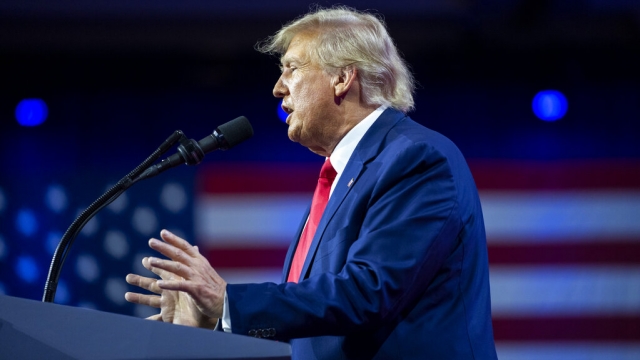After former President Donald Trump claimed last weekend that he was going to be arrested on Tuesday, the day came and went without an arrest.
That does not mean Trump is in the clear.
A grand jury is slated to reconvene on Wednesday. It is being tasked with deciding whether Trump broke a New York law by falsifying records in the hush money payment made to Stormy Daniels.
Manhattan District Attorney Alvin Bragg has not confirmed any charges are forthcoming.
SEE MORE: Amid Trump media frenzy, New Yorkers carry on with daily life
Michael Scotto, former chief of the Manhattan Rackets Bureau, told Scripps News that if the grand jury believes Trump criminally falsified records, it would also have to decide whether the crime is a felony or misdemeanor.
"In order to have it raised to a felony, you have to falsify the records with the intent, right, the intent, to commit another crime or aid or conceal the commission of another crime," Scotto said. "It's not enough simply to make a full entry in the business records. You have to intend to commit another crime or aid or conceal the commission. And in this case, there is speculation that it was a tax fraud, that there was a federal elections fraud, we're not sure what the actual of theory of the case would be, but it would have to be another crime that Mr. Trump had intended to have committed or concealed or aided."
Regardless of whether it’s a felony or misdemeanor, Scotto said a potential conviction would not carry any mandatory jail time.
SEE MORE: Is New York prepared for unrest if Trump is arrested?
"In my 33 years as a practitioner, 23 years as a prosecutor, I don't know that anybody has ever gone to jail for a false records case of this nature," Scotto said.
Those grand jury discussions may never come to light. New York requires grand jurors to remain quiet or face criminal charges. That is unlike in Georgia, where grand jurors have been able to speak openly about an investigation there into Trump’s conversations with election officials following the 2020 election.
"In New York, it's a felony for a grand jury or a prosecutor to discuss what occurs in the grand jury," Scotto said. "Perfectly fine for a witness, although it's sort of unprecedented to come out and tell you what they've testified to. But it would be a Class E felony.”



